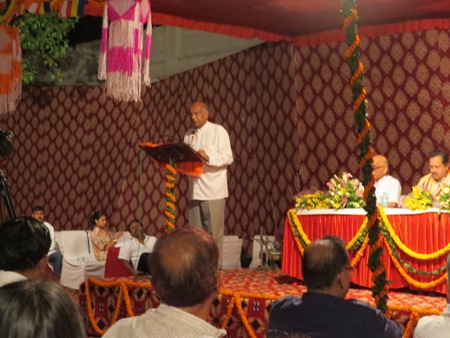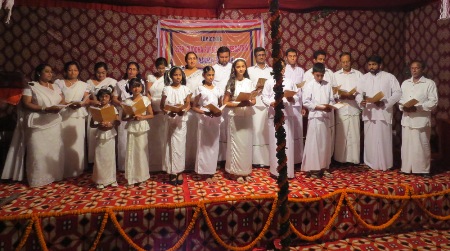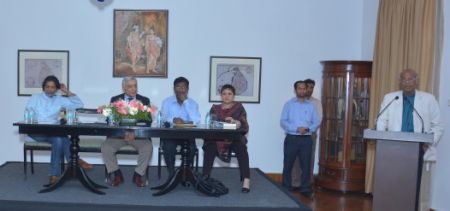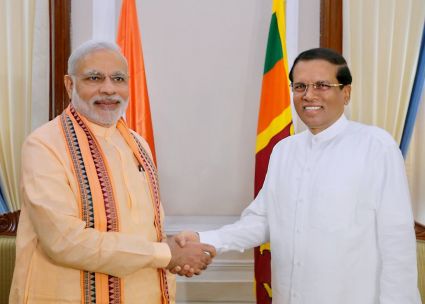|
Wednesday, 06 May 2015 13:32 |
|

 In keeping with the Vesak tradition in Sri Lanka, Sri Lanka High Commission in New Delhi arranged a series of events from 4th to 5th May 2015 to celebrate Vesak and also the 2559th Buddha Jayanthi in New Delhi. In keeping with the Vesak tradition in Sri Lanka, Sri Lanka High Commission in New Delhi arranged a series of events from 4th to 5th May 2015 to celebrate Vesak and also the 2559th Buddha Jayanthi in New Delhi.
|
|
Read more...
|
|
|
Tuesday, 21 April 2015 05:24 |
|

Sri Lanka High Commission in New Delhi organized a Panel Discussion titled “Many Voices on Sri Lanka” on the 17th April 2015 at the Residence. The Panelists were Prof. Prof. Sasanka Perera, Chairman, Department of Sociology, Dean, Faculty of Social Sciences, South Asia University, Prof. P. Sahadevan, Professor of South Asian Studies Centre for South, Central and Southeast Asian Studies Jawaharlal Nehru University, Mr. Kanwal Sibal former Foreign Secretary of India and Ms. Padma Rao, Senior Journalist and the Author of “Sri Lanka: The New Country”.
|
|
Read more...
|
|
Monday, 16 March 2015 06:20 |

Prime Minister of India, Shri Narendra Modi, meets President Maithripala Sirisena at the Presidential Secretariat in Colombo, March 13, 2015
|
|
Read more...
|
|
Thursday, 19 February 2015 10:50 |
|
State Visit to India by President Mairthripala Sirisena
President Maithripala Sirisena undertaking his first State visit to India on 16th February was accorded an impressive welcome at the Rashtrapati Bhawan, in New Delhi with a ceremonial Reception, Guard of Honour and a 21 Gun Salute. Thereafter, President Sirisena laid a wreath and signed the Visitors Book at the Mahatma Gandhi memorial at Rajghat.
On Monday, President Sirisena met Indian President Pranab Mukherji and had bilateral talks with Prime Minister Narendra Modi. During his discussions with the Indian Prime Minister, President Sirisena observed that it was deeply significant that his first overseas engagement was to India which underscored the historical, longstanding bonds of friendship which exist between the two countries. The visit, he said was an excellent opportunity to strengthen the existing relations.
|
|
Read more...
|
|
Thursday, 19 February 2015 10:27 |
|
President Maithripala Sirisena returned to the island yesterday (February 18) after completing a successful three day State Visit to India. This was the first overseas visit by President Sirisena after assumption of office last month.
Relations between India and Sri Lanka have not just been reinforced during this visit but have also gained new heights, direction and momentum.
This visit saw the signing of four bilateral instruments relating to Civil Nuclear Cooperation, Nalanda University, Cooperation programmes relating to Agriculture and Culture.
|
|
Read more...
|
|
|
|
|
|
|
Page 98 of 144 |